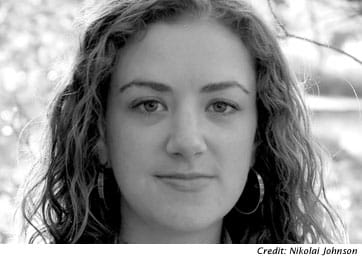
 (WOMENSENEWS)–Social scientists and the media seem to have made an ugly habit in the last few years of labeling my generation (those 35 years old and under) as entitled, self-absorbed and apathetic.
(WOMENSENEWS)–Social scientists and the media seem to have made an ugly habit in the last few years of labeling my generation (those 35 years old and under) as entitled, self-absorbed and apathetic.
Psychologist Jean M. Twenge, in "Generation Me: Why Today’s Young Americans Are More Confident, Assertive, Entitled–and More Miserable Than Ever Before," argues that, largely because of the boom in self-esteem education in the 1980s and 1990s, young people today "speak the language of the self as their native tongue."
Tom Friedman dubbed us Generation Q, for quiet, in the pages of The New York Times, writing that "Generation Q may be too quiet, too online, for its own good and for the country’s own good."
And morning shows can’t resist a segment on how entitled Gen Yers are in the workplace and what their bosses can do to tame their positively gargantuan egos.
I think they’ve got it wrong. They’re missing a class analysis.
And they’ve mistaken symptoms for the disease. We are not, on the whole, entitled, self-absorbed and apathetic. We’re overwhelmed, empathic and paralyzed.
The privileged among us are told over and over that it is our charge to "save the world," but once in it, we realize that it’s not so simple. The less privileged are gifted their own empty rhetoric: American Dream ideology that charges them with saving, perhaps not necessarily the whole damn world, but at the very least their families, their countries, their honor.
Conscious of Complexity
We are the most educated, most wanted, most diverse generation in American history, and we are also the most conscious of complexity.
In "Let Your Life Speak," Parker Palmer writes, "Absolutism and relativism have ravaged not only the things of the world but our sense of the knowing self as well.
We are whiplashed between an arrogant overestimation of ourselves and a servile underestimation of ourselves, but the outcome is always the same: a distortion of the humble yet exalted reality of the human self, a paradoxical pearl of price."
 In other words, we know that–simply by virtue of being born at this time, in this place–we are privileged and furthermore, responsible for sharing that privilege.
In other words, we know that–simply by virtue of being born at this time, in this place–we are privileged and furthermore, responsible for sharing that privilege.
But we also know that making good on either promise–saving the world or saving our families–is not nearly as simple as our kindergarten teachers or our aspirational parents made it sound.
We know that soup ladling isn’t enough, that Western values are sometimes imposed on other cultures in the guise of good works, that charity often serves to disempower a person in the long run, that too many nonprofits are joyless and ineffective places, that we have so much to give and yet so little.
We’ve watched our own parents–many of them immigrants with big American Dreams in bright lights–be disrespected by the supposed promised land. We’ve taken human rights and women’s studies classes where first-world arrogance was put in sharp relief to third-world ingenuity. We’ve experienced the painful irony of walking our donation check, earmarked for Indonesian hurricane relief, to the mailbox in our own poor Oakland neighborhood, which we were gentrifying by our mere existence.
The Impact of Sept. 11
Perhaps most significantly, we experienced Sept. 11 right as we were developing a political consciousness.
I was a senior in college, poised to enter the real world with a sort of indestructible bravado on Sept. 10. On Sept. 11, everything I’d understood about my own safety, about the implications of America’s reputation throughout the world, about violence and poverty and extremism, was transformed.
I became simultaneously more humble and also more committed to really examining the beauty and ugliness of the country I’d been so blessed to be born in. But that examination has not lead to any clear answers.
It’s been worthwhile, but it’s also been paralyzing. The war on terror may be an ill-conceived, inaccurate battle plan, but what do we do in the face of such hatred? Reinstating the draft would be a disaster, but how can we stand by as military recruiters prey on the most needy of young Americans? What is our individual responsibility to end war?
It’s as if we each possess that glass jar, buried within and it’s growing heavier all the time–and we have no idea what the hell we’re supposed to do with it.
Excerpted from "Do It Anyway: The New Generation of Activists," by Courtney E. Martin, Copyright copyright 2010. Excerpted with permission by Beacon Press.
Would you like to Comment but not sure how? Visit our help page at https://womensenews.org/help-making-comments-womens-enews-stories.
Courtney Martin is a writer, speaker and activist in Brooklyn, N.Y.


